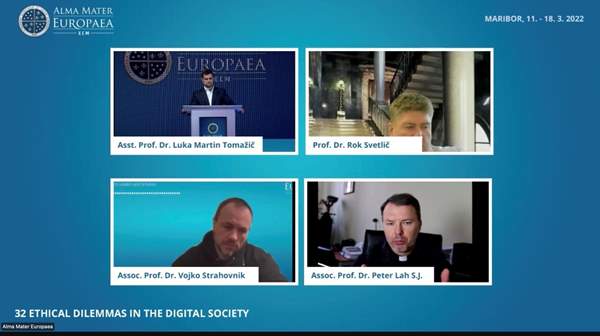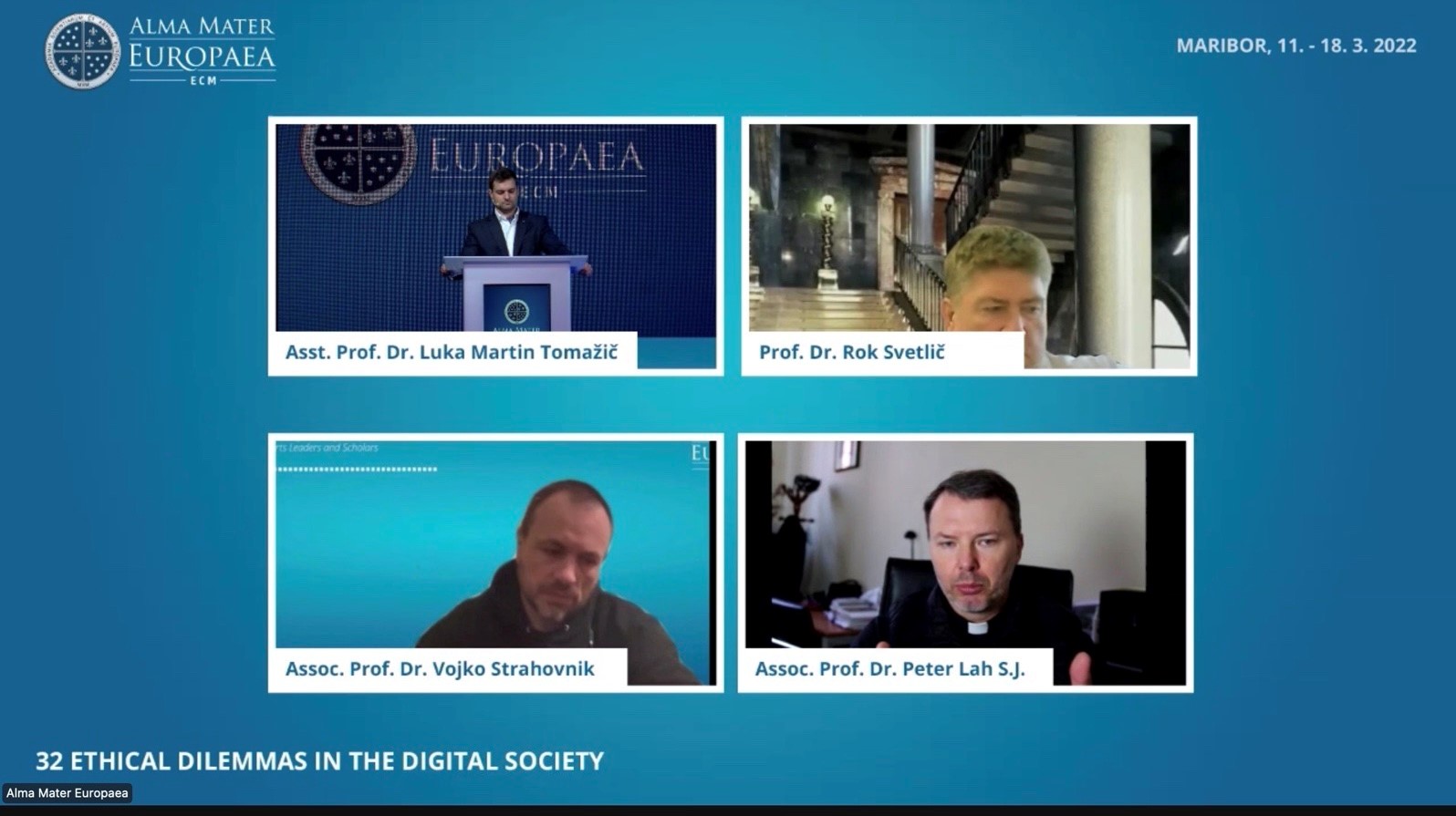
Digitization should put people at the forefront

On 15 March 2022, a round table on the Ethical Challenges of Digital Transformation took place with the Jesuit and professor at the Pontifical Gregorian University, Dr. Peter Lah, Constitutional Judge and Scientific Adviser dr. Rok Svetlič and associate professor at the Faculty of Arts, University of Ljubljana, dr. Vojko Strahovnik. The event was moderated by dr. Luka Martin Tomažič.
Lah emphasized the role of new technologies and social media in changing attitudes in the society. He sees 'fake news' as particularly problematic, or as he calls it: 'spoons.' In fact, these are lies that pretend to be news. This modern form of propaganda is intended primarily to harm someone, or to benefit oneself or one's own. As a society and as individuals, we must learn to face this ethical problem..

''Lažice’ are lies, dressed up as news.
Svetlič emphasized the importance of digitization in the field of law. In particular, he sees it as an important factor in ensuring greater transparency of trials. Digitization should put the person at the center, the person for whom access to data is intended. This is especially important in the highest courts. From an ethical point of view, it is also essential that respect for the law is the sanctuary of democracy. Only digitalisation, which as a process respects the law in the service of man, is appropriate in a democratic society.
"The problem of artificial intelligence is not only technical, but also ethical," said Strahovnik. Systems that use the use of artificial intelligence have also proven to be very useful. This is especially true in light of the COVID-19 pandemic. At the same time, such use of new technologies poses important ethical dilemmas. As a society, we have three responses available to us. We can adapt the traditional understanding of transparency in decision-making. We can adjust our value starting points. The use of non-transparent algorithmic decision-making systems can be banned or restricted.
 The problem of artificial intelligence is not only technical but also ethical in nature.
The problem of artificial intelligence is not only technical but also ethical in nature.
Participants highlighted the ethical aspects of the digital transition, each from their own point of view. They agreed that digitization raises many questions of ethical nature. To solve them, we will have to put the man at the forefront. A broad and inclusive discussion on various aspects of new technologies is needed.
The round table was held as part of the jubilee tenth scientific conference It's about people, co-organized by the European Academy of Sciences and Arts and Alma Mater Europaea. It is one of the largest and most important international scientific events in Slovenia, both in terms of scope and content. European Commissioners Dubravka Šuica and Maroš Šefčovič, President of the Republic of Slovenia Borut Pahor, Ministers Andrijanič and Cigler Kralj, Dean of the Faculty of Law of the University of Oxford Mindy Chen Wishart, Dr. Klaus Meinzer, Member of the Facebook Supervisory Board Professor Dr. András Sajó and many other leading European scientists and opinion leaders were present.


